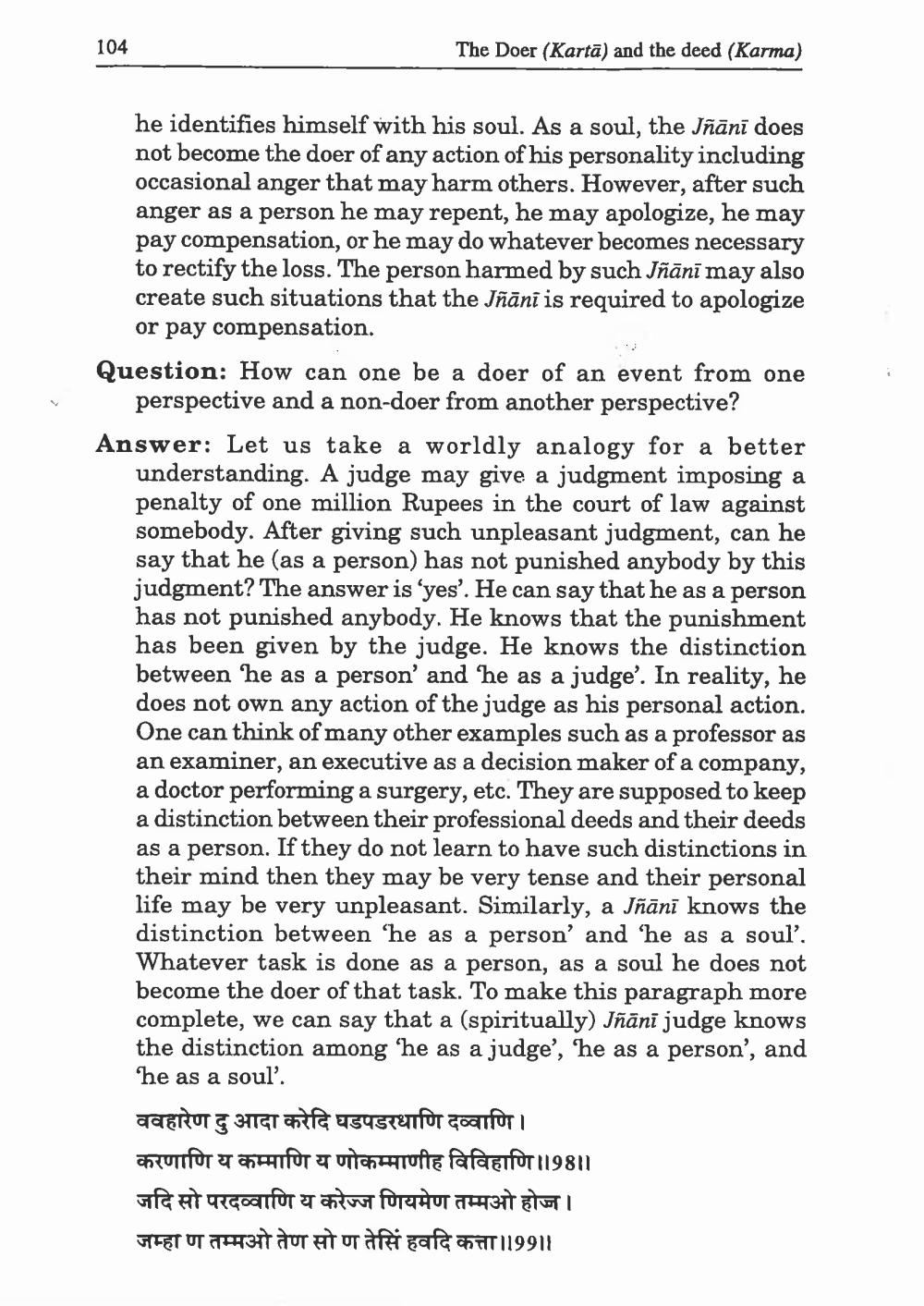________________
I04
The Doer (Kartā) and the deed (Karma)
he identifies himself with his soul. As a soul, the Jñānī does not become the doer of any action of his personality including occasional anger that may harm others. However, after such anger as a person he may repent, he may apologize, he may pay compensation, or he may do whatever becomes necessary to rectify the loss. The person harmed by such Jñānī may also create such situations that the Jñāni is required to apologize
or pay compensation. Question: How can one be a doer of an event from one
perspective and a non-doer from another perspective? Answer: Let us take a worldly analogy for a better
understanding. A judge may give a judgment imposing a penalty of one million Rupees in the court of law against somebody. After giving such unpleasant judgment, can he say that he (as a person) has not punished anybody by this judgment? The answer is 'yes'. He can say that he as a person has not punished anybody. He knows that the punishment has been given by the judge. He knows the distinction between 'he as a person' and 'he as a judge'. In reality, he does not own any action of the judge as his personal action. One can think of many other examples such as a professor as an examiner, an executive as a decision maker of a company, a doctor performing a surgery, etc. They are supposed to keep a distinction between their professional deeds and their deeds as a person. If they do not learn to have such distinctions in their mind then they may be very tense and their personal life may be very unpleasant. Similarly, a Jñānī knows the distinction between 'he as a person' and 'he as a soul'. Whatever task is done as a person, as a soul he does not become the doer of that task. To make this paragraph more complete, we can say that a (spiritually) Uñāni judge knows the distinction among 'he as a judge', 'he as a person', and 'he as a soul'. ववहारेण दु आदा करेदि घडपडरधाणि दव्वाणि। करणाणि य कम्माणि य णोकम्माणीह विविहाणि॥98॥ जदि सो परदव्वाणि य करेज्ज णियमेण तम्मओ होज। जम्हा ण तम्मओ तेण सो ण तेसिं हवदि कत्ता॥99॥




